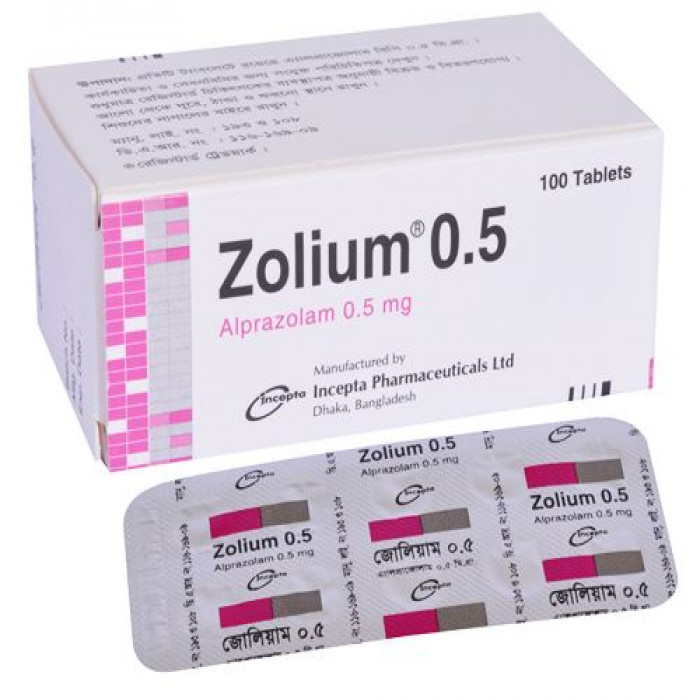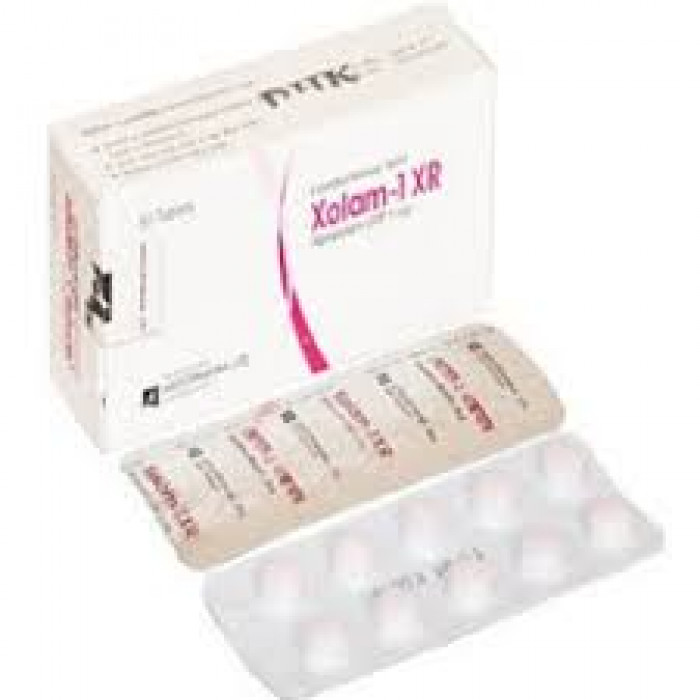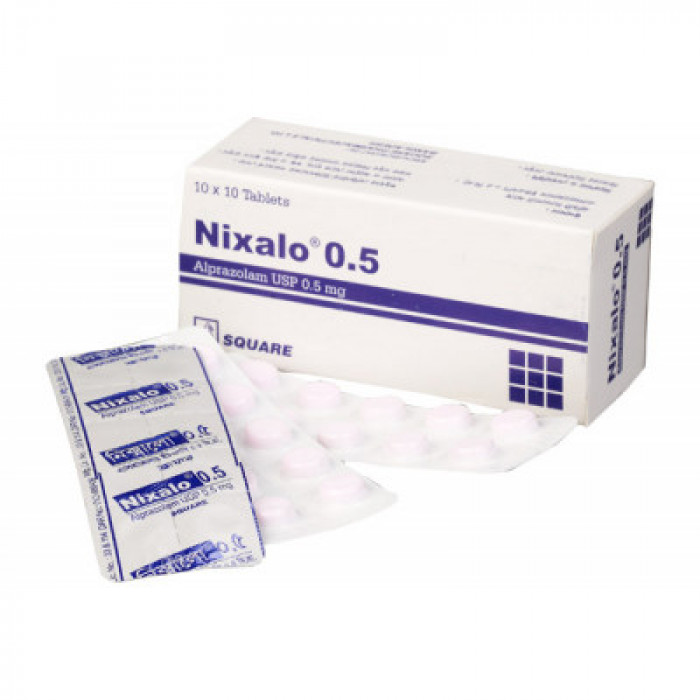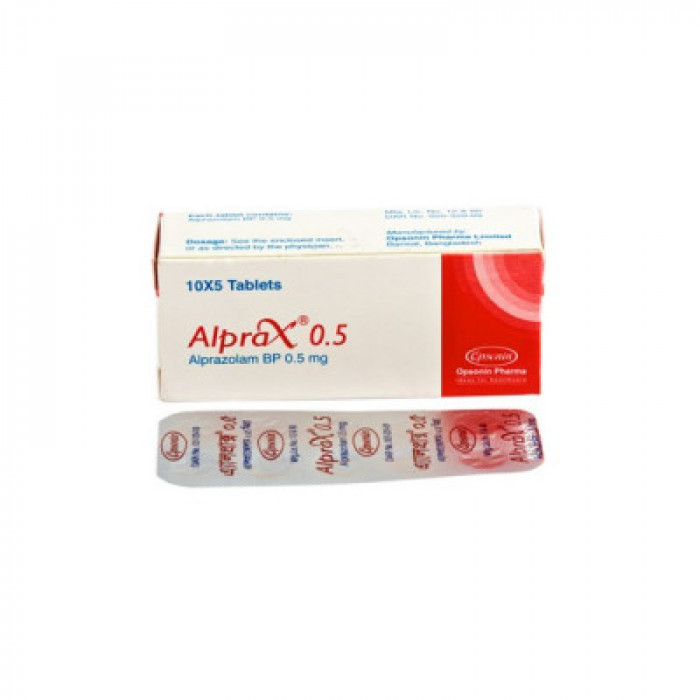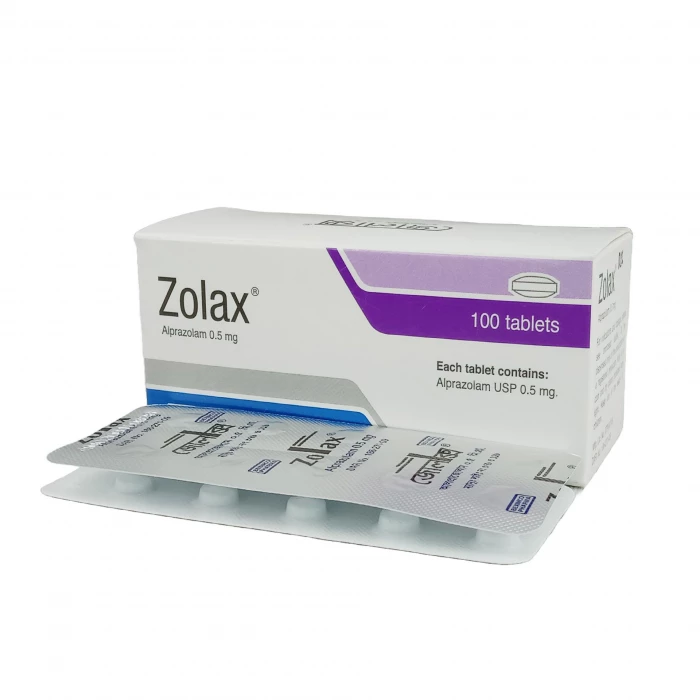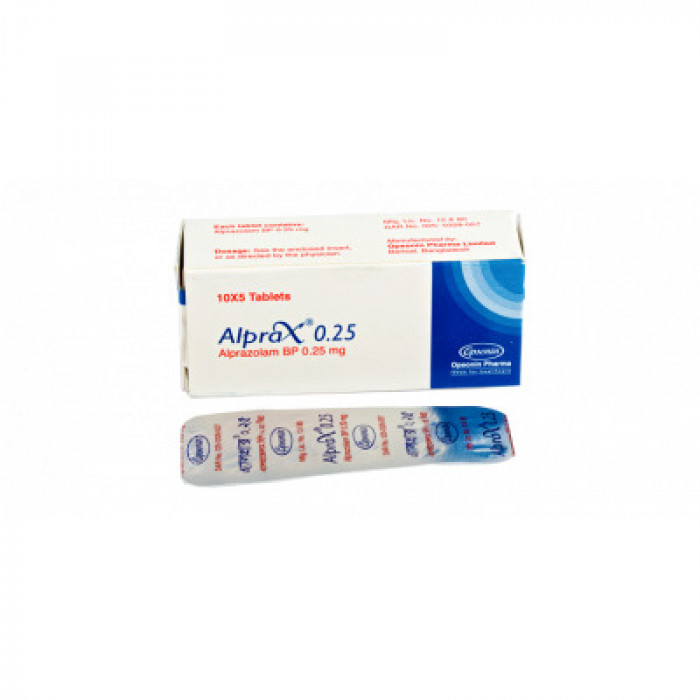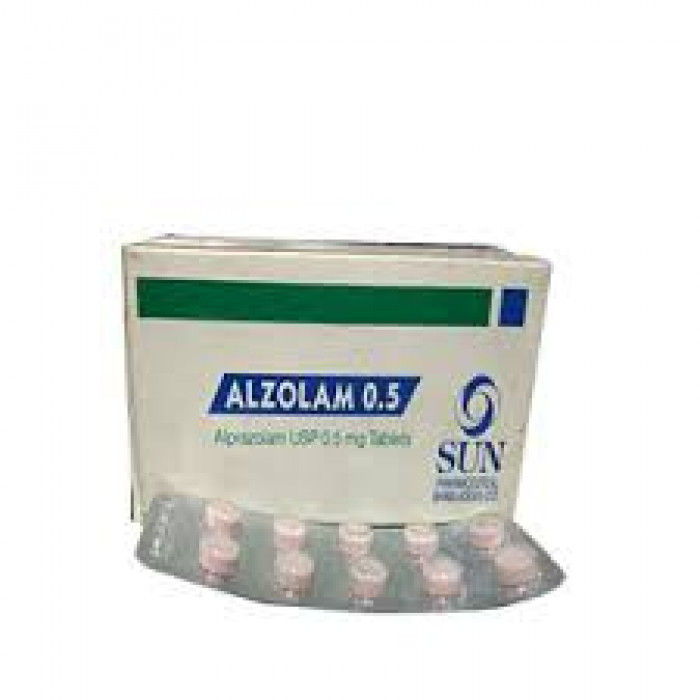

✔ 100% Authentic Product
👁️ Currently Viewing 4243
Generic Name: Alprazolam 0.5mg
Manufacturer/Distributor: Sun Pharmaceutical Industries Ltd.
📄Prescription Required
Discount
Price: ৳ 29
MRP:
৳
30
5%
Off
✅ Description:
Indications of Alzolam 0.5
Alprazolam is indicated in-
- Anxiety disorder
- Short-term relief of anxiety
- Anxiety associated with depression
- Panic disorder, with or without agoraphobia.
Pharmacology
Alprazolam is a triazole analog of 1,4 benzodiazepines. It is an anxiolytic drug with hypnotic and anticonvulsant properties. Alprazolam is speculated to produce its effects by interacting with the gamma-aminobutyric acid (GABA) benzodiazepine receptor complex. Like all benzodiazepines, it causes dose-dependent central nervous system inhibitory activity, ranging from mild impairment in task performance to hypnosis.
Dosage & Administration of Alzolam 0.5
Treatment should be initiated with a dose of 0.25 to 0.5 mg three times daily. Depending on the response, the dose may be increased at intervals of 3 to 4 days in increments of no more than 1 mg/day. The maximum dose should not exceed 4 mg/day. Occasional patients with panic disorder may need as much as 10 mg a day to achieve a successful response and in these cases, periodic reassessment and consideration of dosage adjustment are required.
Dosage should be individualized for maximum beneficial effect with the lowest possible dose. If side effects occur at starting dose, the dose may be lowered. When discontinuing therapy, the dosage should be reduced gradually by no more than 0.5 mg every three days.
In elderly patients or in patients with advanced liver disease, the usual starting dose is 0.25 mg, two or three times daily, and may be gradually increased if needed and tolerated.
Alprazolam 1 mg should be administered once daily, preferably in the morning by patients who are on multiple dosage regimens of Alprazolam 0.25/0.5 mg. The tablets should be taken intact, they should not be chewed, crushed, or broken.
Interaction of Alzolam 0.5
Concomitant use of other psychotropic medicines, anticonvulsants, antihistaminics, alcohol, and oral contraceptives may exacerbate Alprazolam's CNS-depressant effect.
Side Effects of Alzolam 0.5
If side effects occur, they usually appear at the beginning of treatment and usually disappear with continued medication. The most common side effects are drowsiness and dizziness. Other side effects that may occur include depression, headache, confusion, dry mouth, and constipation.
Pregnancy & Lactation
Alprazolam has been categorized in pregnancy category D; which means, it should be avoided in pregnancy. Like other benzodiazepines, Alprazolam is assumed to be excreted in breast milk. Therefore, nursing should not be undertaken by mothers who must use Alprazolam.
Precautions & Warnings
Because Alprazolam may produce psychological and physical dependence, the increment of dose or abrupt discontinuation of Alprazolam therapy should not be done without the physician's advice. The duration of therapy must be determined by the physicians. Alprazolam should be administered with caution to patients with hepatic or renal disease, chronic pulmonary insufficiency, or sleep apnea.
Storage Conditions
Keep out of the reach of children. Keep below 300 C, and protect from light.
⚠️Disclaimer:
At ePharma, we’re committed to providing accurate and accessible health information. However, all content is intended for informational purposes only and should not replace medical advice from a qualified physician. Please consult your healthcare provider for personalized guidance. We aim to support, not substitute, the doctor-patient relationship.






